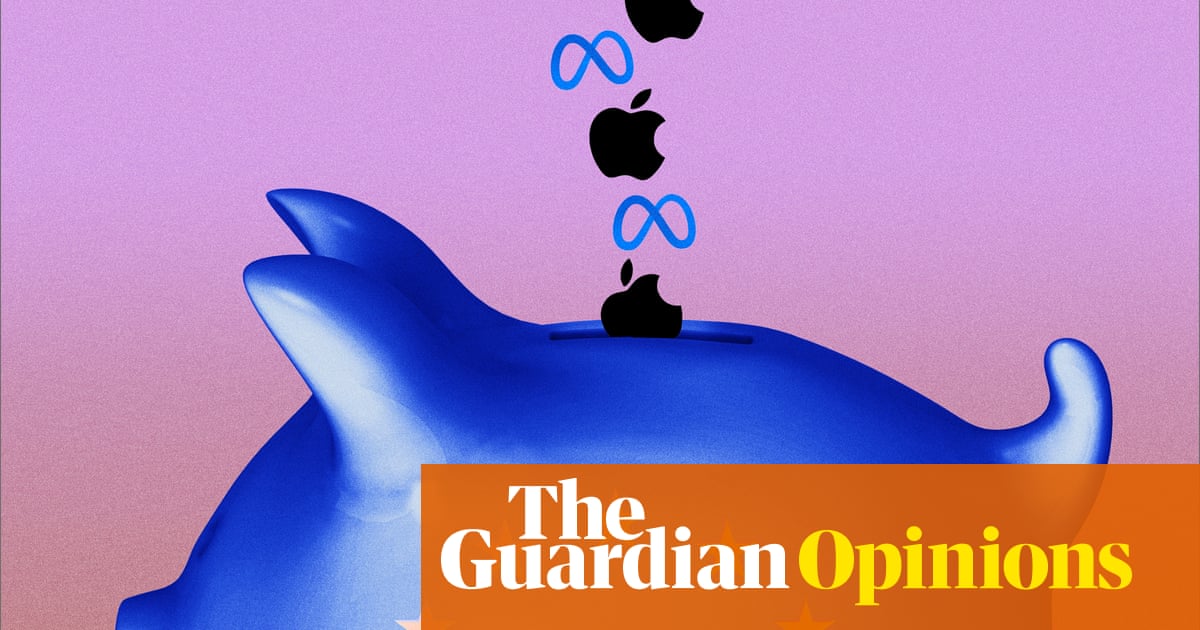The European Commission president, Ursula von der Leyen, had sometough wordsfor big tech this week, but it seems that at the last minute, the EU lost its nerve. Under the Digital Markets Act, companies that the EU has designated as “gatekeepers” – that is, digital platforms that provide core services such as search engines, app stores and messenger services – havespecial obligations and constraintsthat are meant to ensure a fair playing field for other companies.
Apple, which takes a significant cut of purchases (including subscriptions) made through its App Store, violated the act by preventing developers from directing customers to their own websites to get around the “Apple tax”. In Meta’s case, thecompany was finedfor forcing Facebook and Instagram users to either consent to letting Meta use their personal data, or pay a monthly fee to remove ads.
In theory, the act contains bazooka-level enforcement: fines can reach up to 10% of a company’s global turnover, or 20% for repeat offences. In this first test, however, the EU decided to dole out a round of fines so wimpy that it might as well have done nothing at all.
Instead of a maximum$39bn (£29bn) fine, Applewill pay $570m(£430m); instead of $16bn (£12bn), Meta will pay $228m (£172m). Let me break down the sheer insignificance of two fines that sound large but aren’t. Apple, with a $3tn market cap, brought in $391bn inrevenue in 2024. Meta’s revenue was $164.5bn and it made a $62.4bn profit. In effect, the EU knocked 46 hours off of Apple’s year of profit, and shortened Meta’s year by 28 hours.
Fines this pathetic become simply part of the cost of doing business. They risk failing to deter tech companies from abusing their power in the future, just as they have done in the past. In the last two years alone, Meta was hit with an€800m fineand a€1.2bn fine, and Apple was handed a€1.8bnantitrust fine.
There’s another, deeper, political consequence. Voters are fed up with the impunity that follows wealth. In 2008, Wall Street banks crashed the global economy with a mixture of irresponsible and criminal behaviour; taxpayers picked up the tab for bailing them out, and only a handful of executives went to jail. The result was a widespreadloss of faith in institutionsand representative government, and the growth of far-right, populist movements.
The EU might think that by soft-pedalling, it is protecting Europeans from the potential economic impact of angering the Trump administration by handing down deterrent-level fines to his allies, but that’s wrong. In the long run, Europeans will benefit far more from a competitive economy that opens the door for the continent’s own tech companies to emerge and thrive, rather than one governed by monopolistic big tech from the US.
It’s not so much that these “tsk-tsk”-level fines will crater Europeans’ confidence in their government as it is a missed opportunity to show voters what it looks like to actually rein in powerful corporations who assume – rightly, I guess – that at the end of the day, they can pay and go on their way.
Alexander Hurst is a Guardian Europe columnist
